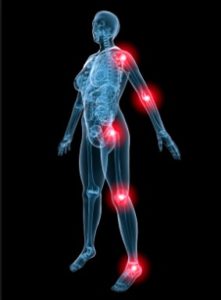Pain is a signal that something may be wrong. It is an unpleasant feeling that might come and go or stay constant, often becoming chronic.
The nervous system is exceptionally plastic, which means it can pick up habits easily. Pain is one of those habits. The more the nervous system practices activating certain symptoms, the easier it becomes to activate it again and again.
Chronic pain doesn’t just impact the brain, it also impacts every aspect of life.
The process of rewiring the neural pathways of chronic pain requires experimentation, patience and consistency.
Science backed techniques, like the ones applied in Hypnocell® can greatly assist in this process.
It works as a process of retraining the cells to access the right pathways of re-connection for cellular regeneration through self-healing.
Neuroscience has been studying the pattern of pain as a strong component with degeneration and the cell inability to rest during long or chronic episodes. It has been found that altering sub-consciousness lead to improvement of this chronicity and allows for longer periods of resting.
Recent research have reported that for adults with chronic pain, “hypnosis” conferred a medium to large improvement in pain that was maintained for up to 12 months post-treatment. Among the benefits associated with hypnosis is the ability to alter the psychological components of the experience of pain that might have an effect on severe pain.
People who are more receptive to hypnotic suggestions in general, or highly hypnotisable, have found the greatest and most lasting relief from hypnosis techniques, and people with moderate suggestibility also show improvement.
Hypnosis for pain relief is likely to decrease acute and chronic pain in most individuals. It is one of the most researched areas among psychologists. It has been used for a number of chronic medical conditions such as headache, package, fibromyalgia, carcinoma, etc.
Meditation promotes the release of endorphins. These are neurotransmitter that can be 10 times more potent than any other pain-killer.
Hypno-analgesia has been widely studied, and has been associated with reduction in the rate of pain, the need for analgesic or sedation, nausea or vomiting, and the length of stay in hospitals, better outcome after medical treatment and greater physiological stability.
More studies have also shown that hypnosis to manage acute pain is often better than other recognized treatments of pain.
Self-hypnosis for pain management is available with sessions combined with solfeggio and binaural frequencies and have shown to decrease pain in people with acute and chronic illness.
It is important to consult with your physician for any conditions preventing you from getting hypnosis for pain control.
Referenced: American Psychological Association.

